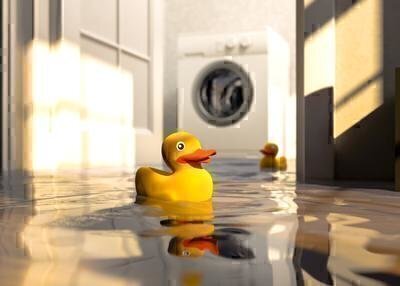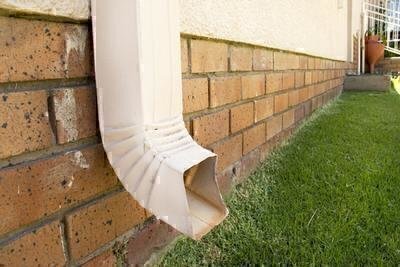If your basement is wet, PLEASE read the following before you call in a basement waterproofing contractor:
- Most basements get wet when rainwater runs toward the walls of houses from roofs, yards, and driveways. The first step to eliminating this is to force water away from your home. Repairing gutters, extending downspouts, and/or grading the soil around your house will clear up most problems at a minimal price.
- If these simple fixes don’t work, get an independent opinion from a drainage specialist or a home inspector with expertise in drainage issues. You’ll have to pay for an inspection, but a competent inspector’s advice may save you many times their fee.
- Focus on solving the problem from the outside. Many basement waterproofing contractors want to sell costly interior drainage systems with sump pumps—even if you don’t need them. If built properly, these systems will keep your basement dry, but there usually are better solutions that prevent water from reaching the walls of your home; interior systems manage water only after it has entered the building.
- If your home was built within the last few years, check the builder’s warranty for clauses on seepage.
Don’t ask a basement waterproofing contractor for help until you are absolutely sure you need its services.
If you do need to hire a contractor, meet with and obtain proposals from several companies. Many landscaping companies specialize in drainage work. If you must hire a basement waterproofing contractor, use our ratings to identify ones that get favorable ratings from their customers. Avoid companies that use aggressive sales tactics.




